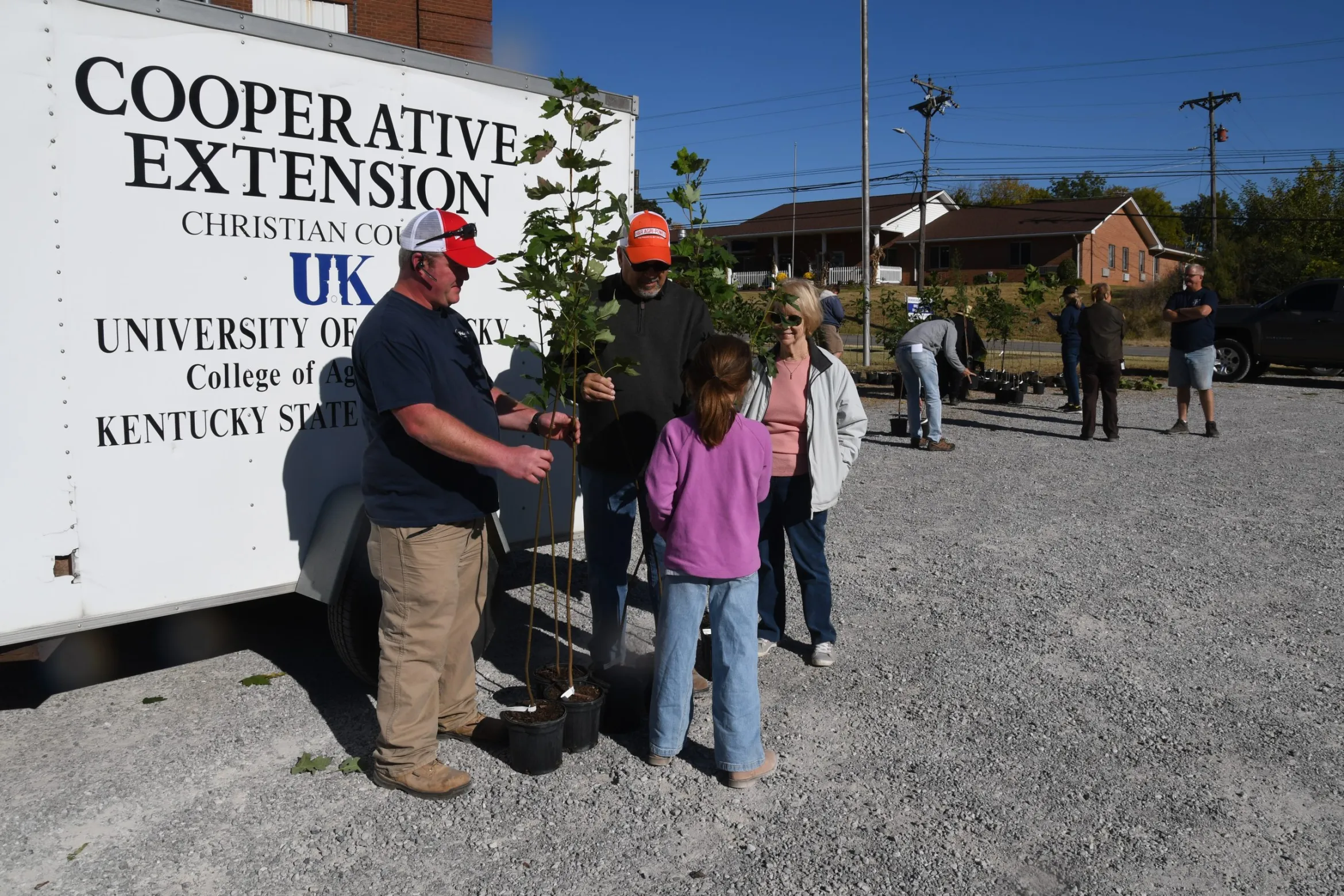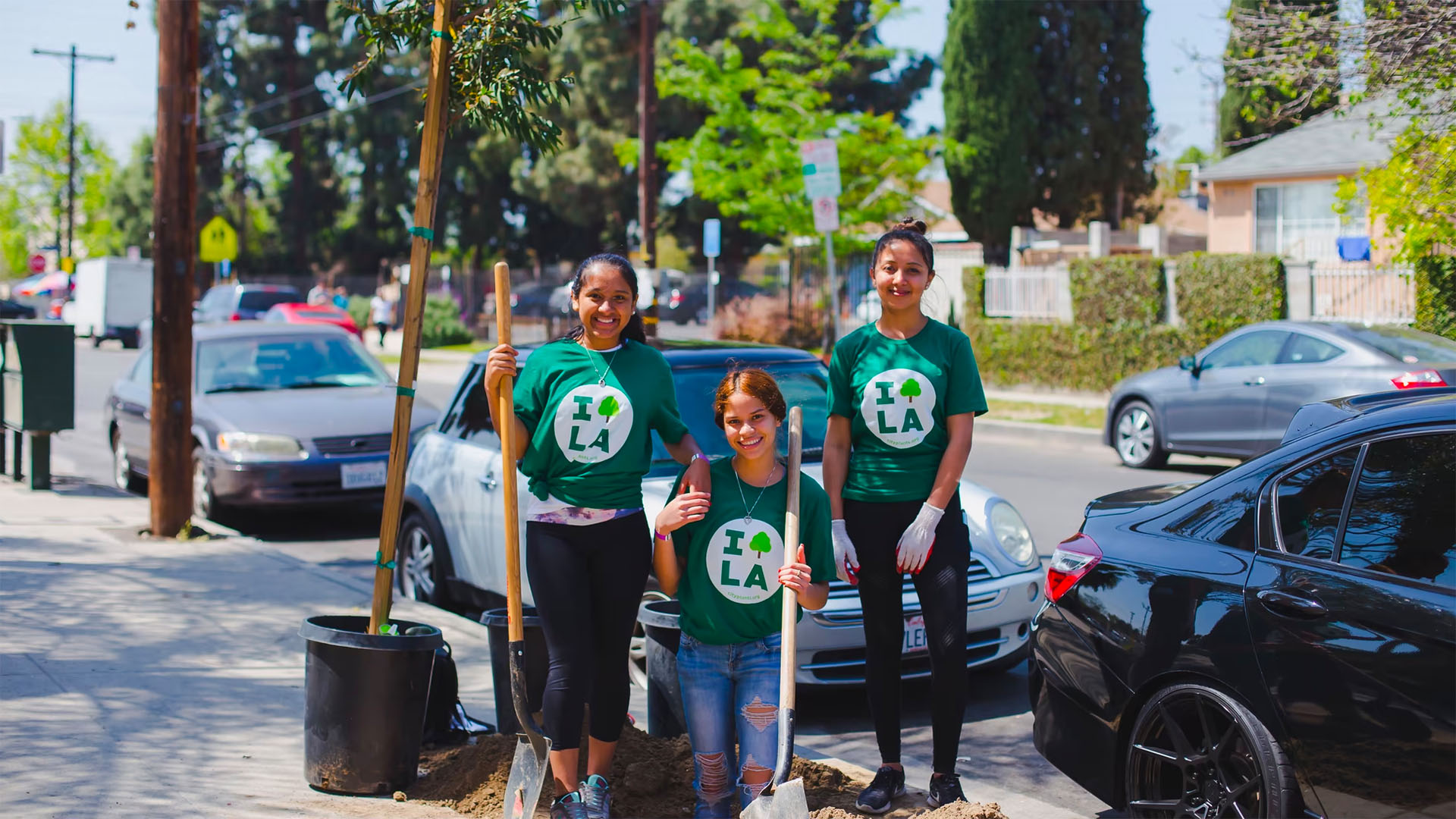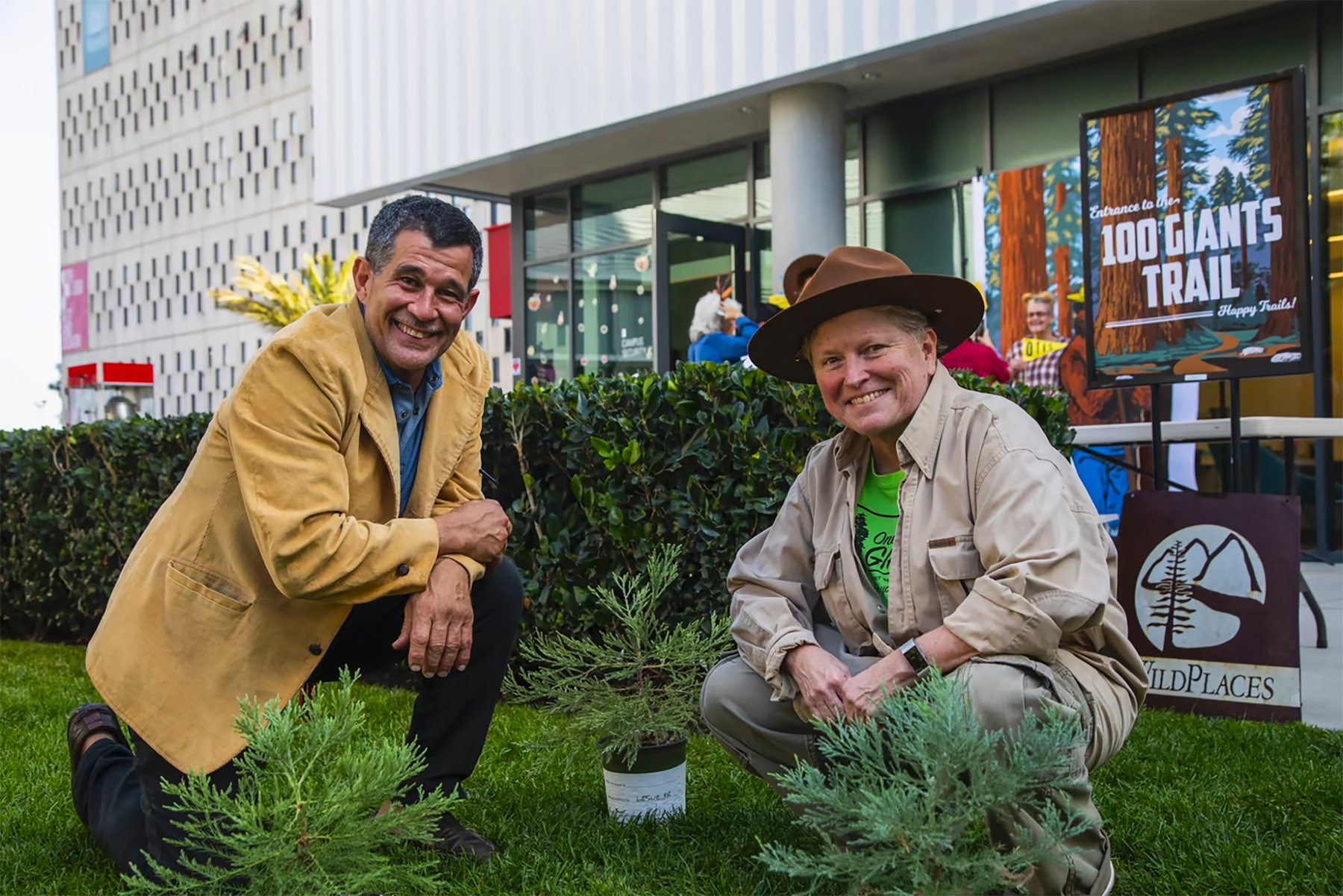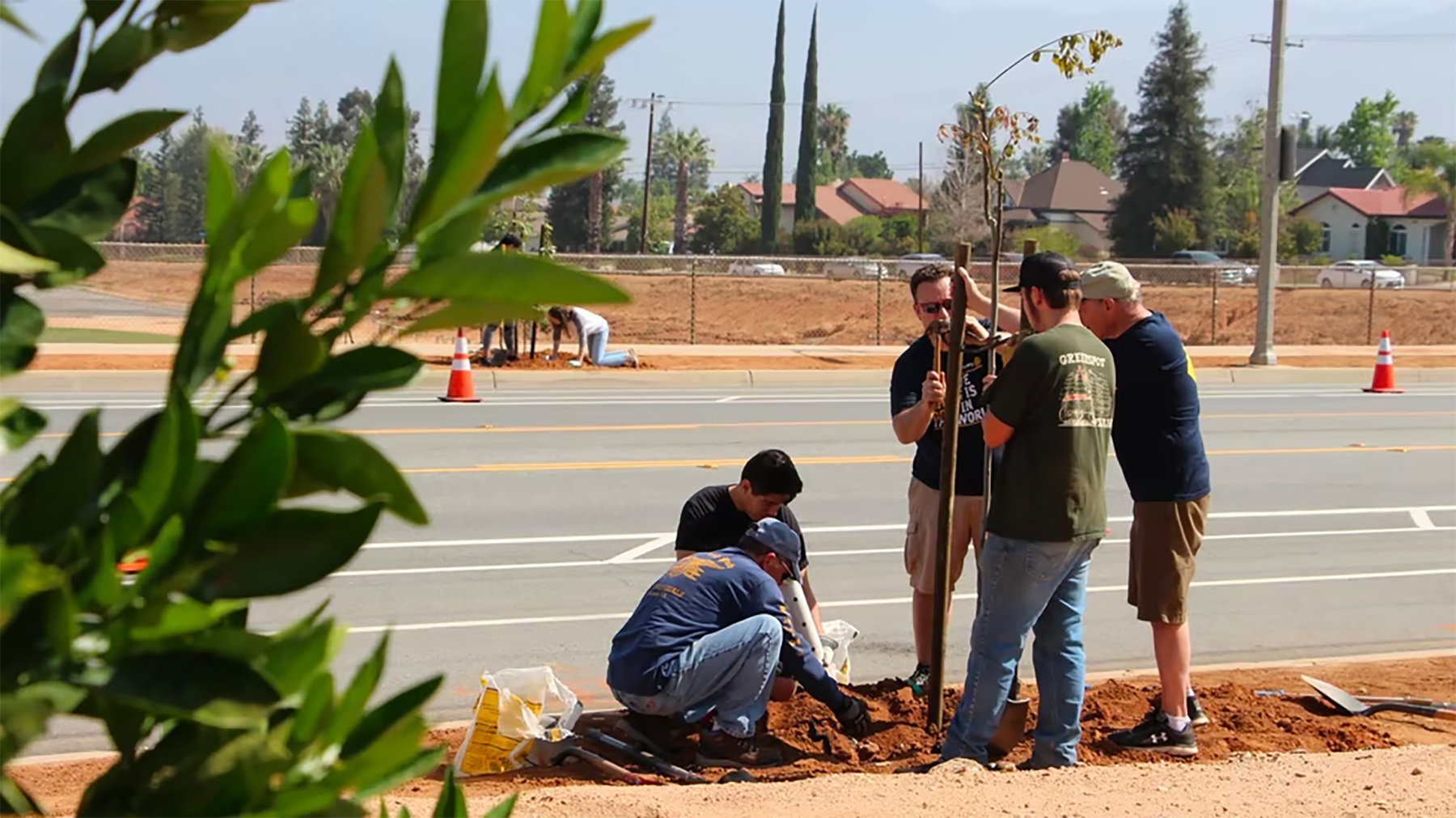Editor’s note: A little over a year ago, two tornados tore through Western Kentucky. As Toni Riley reports for The Daily Yonder, for residents affected, “aid was immediate. Thousands of volunteers, millions of dollars of donations, and support poured into the counties—many with irreparable damage.”
Riley’s reporting highlights a relief response perhaps not typically thought of: Trees. Riley shares the story of Ashley Short and his crisis response, which we are republishing below.
Why trees for Short?
“I wanted to do something to help,” Short told Riley. “My attitude toward this comes from my heritage, my parents, and even my Cherokee ancestry. If you take care of the Land, it will take care of you and always leave the world a better place than you found it.”
Through his Highlandbrook Nursery, he could do something: He could grow the trees. But distribute them? He turned to Christian County Extension Agent for Horticulture, Kelly Jackson, who agreed to help in January.
Short followed up with Jackson in August, when some 3,600 young trees were ready to be planted in communities in need. This set the proverbial snowball in motion. Jackson contacted a meteorologist to help review the path of the tornados to identify areas most in immediate need. Others from the Christian County Extension stepped up. Other Extension offices joined the effort. And communities and residents began putting in requests for trees.
Short’s story is one worth sharing for several reasons:
– One, it is timely to think about trees at this time of the year. Many have real or artificial pines in their living rooms, or have visited homes with them, a perennial reminder of humanity’s connection to nature through tradition.
– Two, it calls to mind the enduring guidance to ‘think global, act local’, in the spirit that James Fallows wrote “tree planted – or cut down – anywhere can affect people everywhere.”
– Three, it also calls to mind other initiatives to plant more trees, like the plan to grown 90,000 trees in Los Angeles; the efforts of the California Volunteers under the leadership of Josh Fryday, the state’s Chief Service Officer (who Our Towns most recently featured on the Inside Our Towns podcast), and work underway in Cedar Rapids, Iowa to plant some 42,000 to replace 70% of those lost after two floods and a derecho, which we shared in the December edition of the Our Towns Flyer.
Here, Riley reports on how one person’s seed of an idea is growing changes thanks to collaboration. It’s a story of the potential to scale community-level impact through collaboration worth reading here, and following up on — like those in California and Iowa and elsewhere.
This story was originally published by The Daily Yonder, which has been providing news, commentary, and analysis about and for rural America since 2007. You can connect with more of their work here. You can report Riley’s reporting here:
When two massive tornados ravaged rural west Kentucky on the evening of December 10 and the morning of December 11, 2021, aid was immediate. Thousands of volunteers, millions of dollars of donations, and support poured into the counties—many with irreparable damage.
As the families began to pick up the pieces of their lives, many suffered a total loss, including decades-old trees; replacing those trees wasn’t foremost in their minds. But it was for Ashley Short.
In January 2022, Short began formulating an idea to provide trees to homeowners affected by tornados.
“I wanted to do something to help”, Short said. He had wanted to help locally but found plenty of volunteers already. But trees were something he could do.
Trees he would grow himself at his Highlandbrook Nursery, and not just a few trees – 4000!
“My attitude toward this comes from my heritage, my parents, and even my Cherokee ancestry. If you take care of the Land, it will take care of you and always leave the world a better place than you found it,” Short said.
Short began by contacting Christian County Extension Agent for Horticulture, Kelly Jackson. If Short grew the trees, could Jackson get them distributed? “Of course,” was Jackson’s immediate response.
Jackson had actually been thinking about trees. Extension Agents in the area attended training on how to provide tornado relief. One training told of a tiny town in Kansas, leveled by a tornado, but when rebuilt, had no tree-lined streets and didn’t feel like home. Jackson thought Short’s donation would help develop that feeling of “home.”
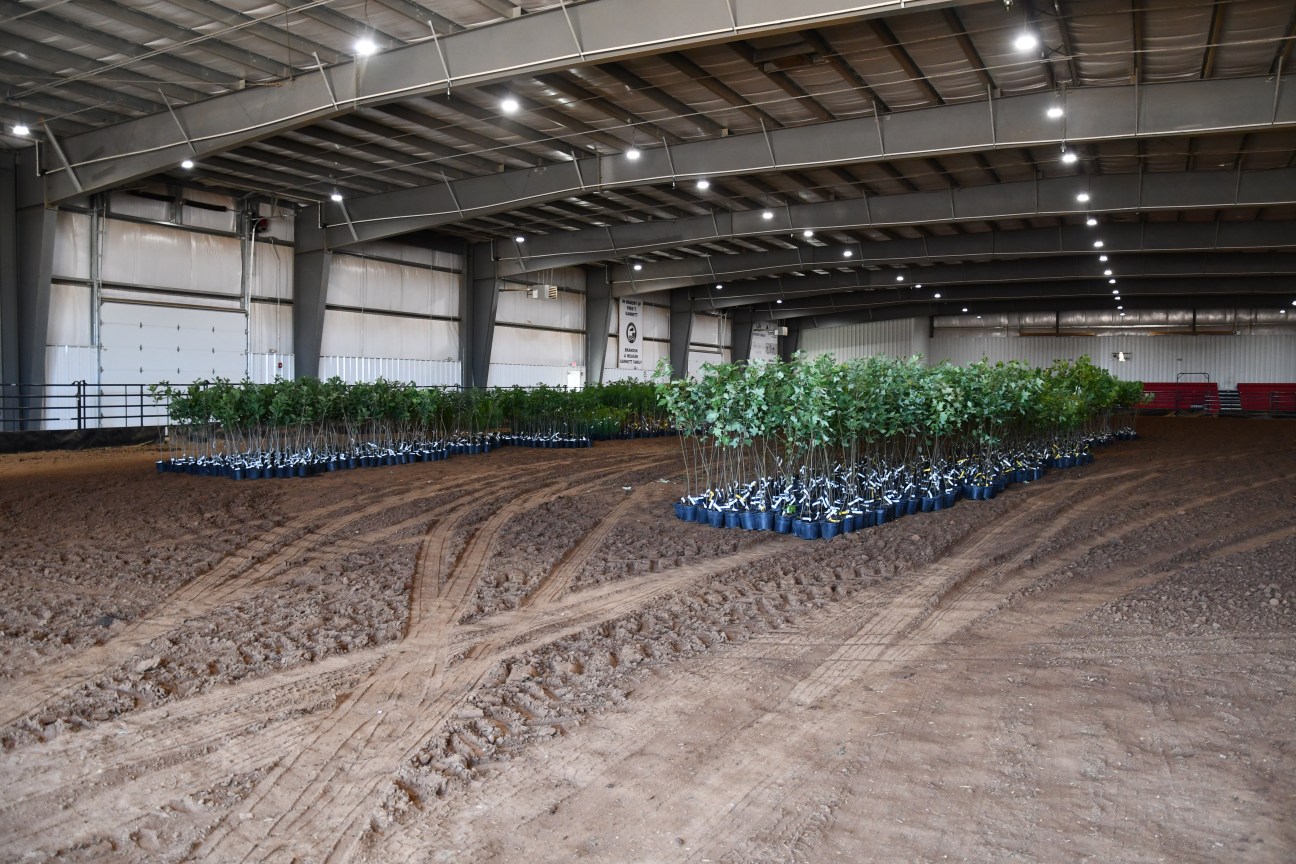
Short would provide native trees, a specialty of his nursery, located on the family’s 1811 farm near Allensville, Kentucky. He selected 21 species, including evergreens, nine different oaks, and perennial favorites, Red Maple and Yellow Poplar. Short also said he liked to think the trees were his footprint on the earth. He wanted to think about what kids would play under the trees and what animals would use them as a habitat.
In March, he purchased the 18-inch seedings, and he and his work team potted the seedings in gallon pots, watered, and fertilized them throughout a hot, dry summer. He estimated he invested about $9000 in the project.
In August, Short got back in touch with Jackson and said the trees, now 4 and 5 feet tall, were on schedule, however, the total number would be around 3600 due to loss from deer and rabbits.
Jackson contacted Matt Dixon, a University of Kentucky Extension Meteorologist, to determine the specific counties affected by the tornados. There were two lines of tornados running parallel through west Kentucky. The northern path was an EF 4 that devastated communities along a 200-mile line from Fulton County in the farthest western tip of Kentucky to Breckinridge County, about 50 miles east of Owensboro. An EF 3 tornado traveled a path from Trigg County, on the eastern side of the Land Between the Lakes, through Bowling Green into Taylor County in south central Kentucky.
Fourteen of the 21 affected counties responded to the offer for trees, and Jackson set up a schedule to deliver trees during National Tree Week in mid-October.
Christian County Extension staff and Christian County Master Gardeners’ set out across the state and distributed trees with the help of other University of Kentucky Cooperative Extension Agents. Counties received from 650 to 150 trees, and Taylor County received the most.
Jackson said he knew of no other single individual or business that had donated, such as Ashley Short. He did say the Arbor Foundation in conjunction with other companies, had given trees away in two communities, but not the scope of the Highlandbrook Nursery effort.
On a bright blue October morning, the old Pembroke School parking lot in Pembroke, Kentucky, filled quickly as Christian County Master Gardeners, Nate Pickens and Frank Amaro, set out 250 trees for the town of 650 and the nearby farming community.
Each site replicated this scene, with communities and neighbors coming together. The words thank you, hope, and future were repeated frequently.
Tiffany and Brandon Hilliker, new residents to the Pembroke area, lost several trees on their 5-acre property.
“I love trees,” Tiffany explained as she and Brandon made their selections. “I think there is a spirit about trees, which hold so much history and are important to our future.”
A young Pembroke Elementary student selected eight red maple trees to plant at her school, so her fellow classmates could enjoy the cheerful red fall color.
In Muhlenberg County, Extension Agent for Agriculture Darrel Simpson told of a family who would be planting their trees in memory of family members who died in the tornado.
“Although the tree program may be perceived as a ‘service,’ it is much more. It is a way to start the rebuilding and healing process much needed by our community,” Simpson added.
The Southern Christian County Howell community came together at the home of Master Gardener Janie Giles to pick up their 150 trees.
“It was in therapeutic,” Giles said. “We don’t have a gathering spot, and this was the first time neighbors had come together since the tornado,” Giles noted that many of the people did not know each other, and they talked at length about their experience that night and how they coped.
Ashely Short was surprised and humbled when he started receiving letters of gratitude.
“I never realized I was touching people the way I did.”
He received a letter from a family in Mayfield who lost 125-year-old trees on their farm and how meaningful it was to be able to plant trees back for the future generations of their family.
Pembroke Mayor Judy Peterson said the tree distribution was essential for this close-knit community where everyone knows everyone.
“It’s good for the community to come together; getting the trees is so important. We have been through so much and lost so much. You have to have mother nature – it helps build back and gives us hope.”
Toni Wilson Riley is a retired Christian County Cooperative Extension 4-H Youth Development Agent and lives in Hopkinsville, Kentucky, on a small goat farm.
This article first appeared on The Daily Yonder and is republished here under a Creative Commons license.

